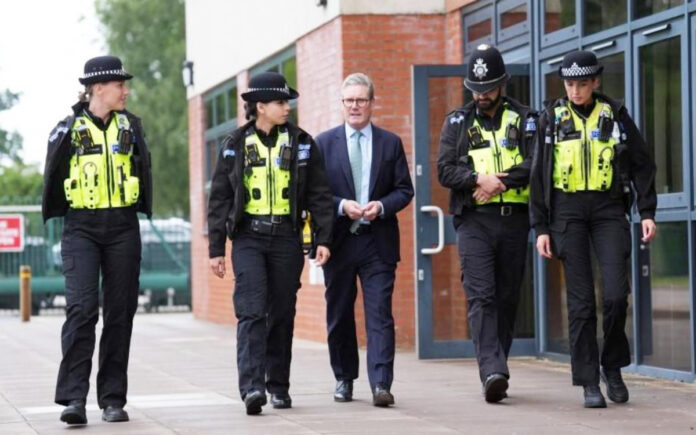London: The wave of violent riots that erupted across the United Kingdom last summer was not the result of organized extremist groups, but rather the rapid spread of online misinformation, according to a new report by England’s police watchdog. The agency has urged police forces to improve their response to digital threats and avoid being caught off guard in the future.
The unrest, which saw far-right supporters take to the streets during anti-immigration protests, was sparked by false social media claims that a British teenager responsible for killing three girls at a Taylor Swift-themed dance event was an Islamist migrant.
Eighteen-year-old Axel Rudakubana later admitted to the killings and the stabbing of ten others in Southport in July. He was sentenced in January to a minimum of 52 years in prison.
His Majesty’s Inspectorate of Constabulary and Fire & Rescue Services (HMICFRS) concluded in its report that the rioters were not organized criminal networks or ideological extremists, but rather “disaffected individuals, influencers or groups that incited people to act violently.”
“It was mainly unrelated to their ideology or political views,” the report stated. “The causes of the disorder were complex, but the overwhelming speed and volume of online content further fuelled its spread.”
The inspectorate criticized police forces for not keeping pace with the dynamic nature of online communications. It stressed that law enforcement must adopt a more proactive and innovative approach in countering misinformation and maintaining public order.
“Policing cannot be passive when public safety is at risk,” the watchdog said.
Also Read | Travelers Without REAL ID Will Still Be Allowed to Fly, Says US Homeland Security Chief
It also found that police failed to prioritize intelligence related to potential disorder and had not sufficiently learned from similar incidents in the past. Chief Inspector Andy Cooke emphasized that law enforcement agencies “should not be caught off-guard again.”
While the National Police Chiefs’ Council (NPCC) welcomed the report’s findings, it pushed back against certain aspects, arguing that the watchdog placed unrealistic expectations on the police.
Also Read | Ancient Cuban Dish Casabe Makes a Comeback as Local Solution to Food Shortages
“It overlooks the reality that law enforcement cannot and should not regulate social media, placing unrealistic expectations on policing while ignoring the critical responsibility of platform providers and regulators,” the NPCC said.
The NPCC added, “Without robust detection, moderation, and removal of false narratives, misinformation will continue to fuel unrest unchecked.”



